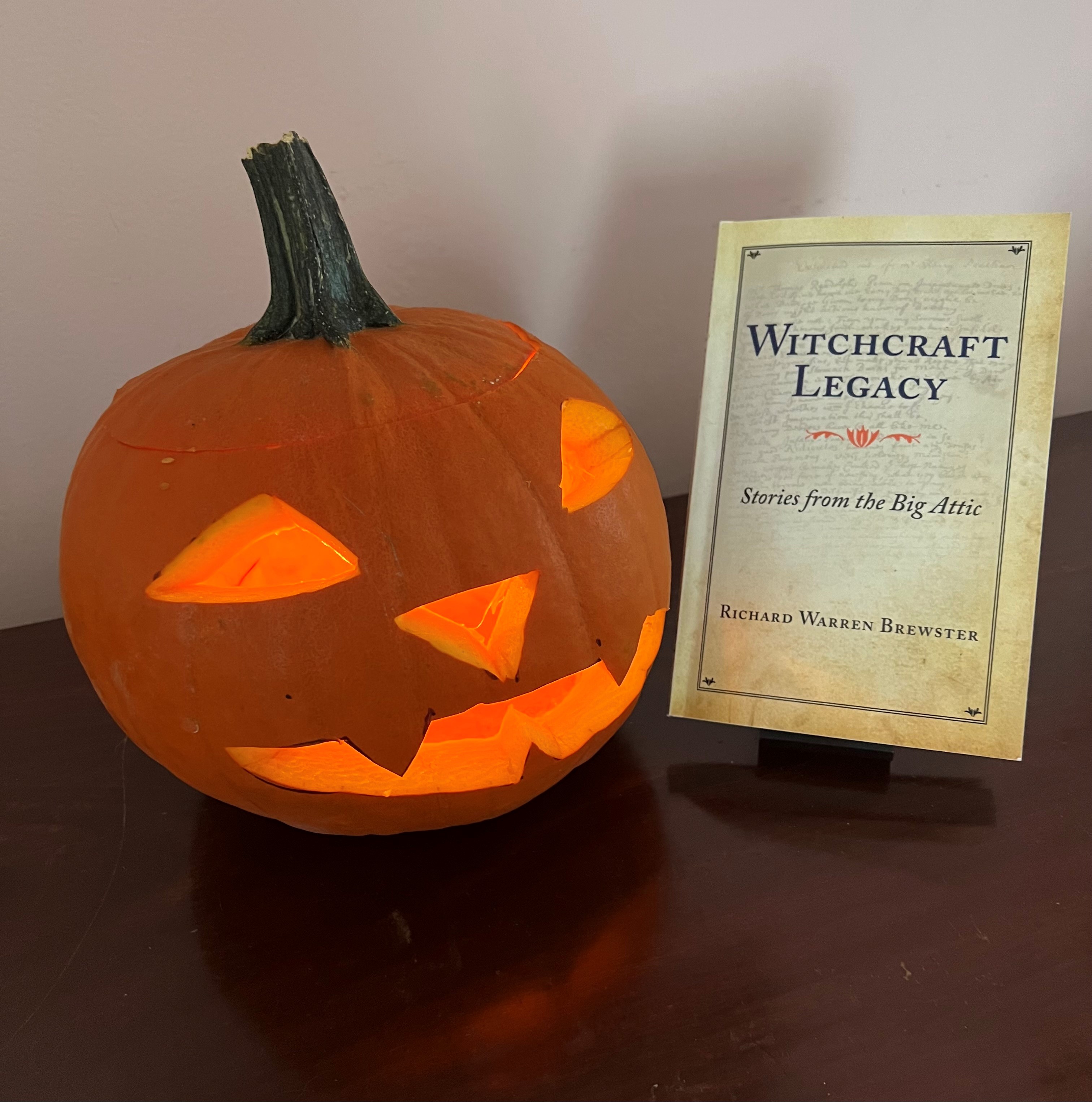
OBS imprint Protean Press is proud to announce the release of its latest title, “Witchcraft Legacy: Stories from the Big Attic” by Richard Brewster.
As a boy, Protean Press author Richard Brewster and his brother discovered an ancient tome buried in a trunk in their attic, with a flyleaf inscribed by William Stoughton, Chief Judge at the Salem Witchcraft trials in 1692. The crabbed script told of Evil Spirits that would not let the Judge eat or sleep or breathe or pray. The Brewster brothers felt that mere possession of that book, handed down generation after generation, extended a curse on his family.
When the Pandemic shut down New York City, and Brewster’s mediation practice with it, our author began to chronicle the sad and painful, sometimes murderous stories buried in the family lore, tracing in centuries of family anecdotes, the sinister trail Stoughton evoked, up to the present day.
Coincidentally, and contributing to this “past is prologue” theme, the Peabody Essex Museum, America’s oldest continuously operating museum (led for the first time in its 221 years by a woman director, Lynda Roscoe Hartigan), recently opened a new exhibit, “The Salem Witch Trials: Reckoning and Reclaiming,” a distinctly non-tourist-y exhibit, per the New York Times, which ties the political climate of the Witch trials to that of today – comparing the climate of general fear and mistrust, exploitation of the many by the few rich, and suppression of women’s rights.
A common thread between the book and the exhibit: Chief Judge William Stoughton, an extreme misogynist and man obsessed by money, or the lack of it. He rose from poverty to become the richest man in Massachusetts by the end of the 17th Century, and endowed a scholarship at Harvard University that still benefits Native Americans today. He donated a hall to the University, the first benefactor to ever have done so, which they named after him. His signature appears on the death warrants of the witches hanged in Salem, and on the flyleaf of Brewster’s book.
Stoughton is most famous for allowing “spectral evidence” in the witch trials – allowing witnesses’ visions of ghosts and dream experiences into the evidentiary trail. We are curious what Richard Brewster, himself a lawyer and mediator in New York City, might hypothesize about how the re-allowance of spectral evidence might affect some of today’s court dramas. One can follow him on Instagram, Facebook, and LinkedIn and find out!
